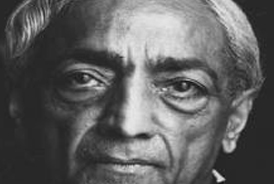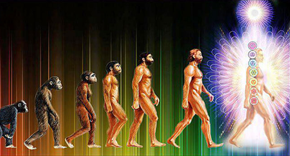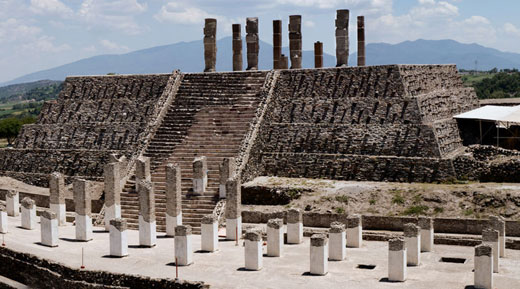by Jiddu Krishnamurti: Question: What are your views about the implications of the belief in reincarnation?
Krishnamurti: Again, this is a vast subject. Again, as a means
of self-discovery we will examine the problem; not to find a `yes’ or
`no’ answer but as a means of understanding ourselves. There is so
much to say and I must be brief. I can only give hints, point out
certain significances, I cannot go into the whole problem, because it
is immense. I do not know whether you see it in the same way I do.
First of all, let us put aside the superficial responses and
reactions to this question, one of which is that the person who wants
a good time does not bother about reincarnation, about life after
death. The person has a good time anyway, which means that he is not
afraid to act as he pleases or else he is so stupid that he feels no
responsibility for his actions. After all if you have to pay for
your actions you are going to be very careful. If, in the business
world, you know a mistake will make you lose, whether a small or a
large amount, you will be very, very careful. So, fear has been used
as a means to control man; that is what religions have done, what
society does through its code of morality. For the moment we are not
concerned with that aspect of the question. Neither are we concerned
with belief, because belief, to a man who is seeking truth, has no
significance whatever, as belief is merely a security, an anchorage, a
haven. A man who seeks truth must travel the uncharted seas; he
has no harbours, he has no havens, he must go out to explore.
So, we can put aside also this aspect of the problem.
Two things are implied in this question: continuation, and cause
and effect. With regard to continuation, we must consider the idea
that there is in each one of us a spiritual essence which continues.
Now let us examine that idea. First, it is said in books and you
also feel that there is a spiritual structure which continues after
death. Please do not be on the defensive; I want to find out the
truth about it. To accept an authority is to stop all thinking
process. So, we are not going to accept what the sacred books say
nor what you feel because after all what you feel is based on your
desire for security.
Now, is there a spiritual essence in man?
Please consider the implications. All that is spiritual is in
essence timeless, it is eternal. Surely, if that is so, the
timeless, the eternal is beyond birth and death it is beyond time and
space. So, you need not worry about things that are beyond time.
It is not your concern. If it is timeless, if it is eternal, it is
birthless and deathless, it has no time. If it has no time, it means
there is no continuity; then why do you hold on to it? If it is
timeless, it would not be continuous. But to you it is of time,
because you cling to it. Therefore, it is not timeless. Therefore
it is not spiritual in essence; because you have created it,
therefore you cling to it. If it were real, it would be beyond your
control. If it is true, you do not know it and, as I said before, if
you know it, it is not true, and yet you cling to it. You say that
there is a spiritual essence, which is the I, and that it continues,
and at the same time you say it is timeless. So you have to
understand the problem of continuity, which implies death, in order
to know whether there is a spiritual entity or not. You have to
understand death, which means you have to understand the whole
problem of continuity. What continues in our everyday life? Memory
through your own continuity, through your family, your belief; and as
we seek continuity, psychological and physiological, we are afraid of
death. Therefore, we want continuity. If continuity of this
physical existence is denied us, we seek continuity in what we call
`God.’ Therefore, when we talk of reincarnation, we actually seek
continuity. 24 Now, what is it that continues? You, that is, your thinking,
your memories, your day to day experiences. I identify myself with
my memories, my property, my family, my beliefs and I continue and I
want to be sure that that which continues, goes on. Therefore, I do
not want to die, yet I know that I am going to die. So, how can I
find continuity? Therefore, my problem is not to discover the truth
about reincarnation, but to ensure my continuity. What is it which
we say continues? What is that to which we hold on so desperately,
so fearfully, so anxiously? Are they not memories? Sirs, remove
your memories, and where are you? And those memories are given life
by constant accumulation and by constant recollection. Memory in
itself has no substance, no vitality. The moment I say `I remember’
I am identifying myself with the past. That is, as long as a man who
is the result of the past, is concerned with the results of the past,
there must be continuity. And what happens to that which continues.
Nothing, for it is only a habit. Habit is the only thing that can
continue, and to which you give life from time to time. So, the
thing which continues is memory, a dead thing to which you give life,
which means that through a series of habits, accumulations and
idiosyncrasies, the experiences are translated to produce all that
you wish to have continued. Moreover, that which continues decays.
That which is continuous is non-creative.
So, this is what is principally involved in the question of
reincarnation and this is the truth of it; not what a man says about
it that it is a fact. If we really go into it, if we are aware of
its significance, we will find that, that which is spiritual is
timeless and therefore beyond our reach and therefore beyond
continuity; for continuity is time – yesterday, today and tomorrow.
And the more we cling to that spiritual essence, the more we are
really distracted from it by false action, because the timeless
cannot be known by the known. You talk about the spiritual
essence, which is the I, therefore you must know it, therefore it
is not the truth. I am not describing something which is not.
Memory by itself is a dead thing. We give it life because it
gratifies us. But where there is gratification there must be
continuity, and gratification soon ends, but we revive it in another
form, and so we keep going. And what is continuous is not immortal,
what is continuous does not renew itself. It merely continues as a
habit. It is only in renewal that there is creation, there is reality; but
only in ending there is renewal, not in continuity. See
the trees, they drop their leaves and fresh leaves come. They do not
continue. Because we are afraid, we cling to our memories and a man
who is living as a continuity is a dead man and I am afraid that is
what we are doing.
In this question there is also the problem of cause and effect.
Are cause and effect two separate things or are they interrelated?
The effect becomes the cause. So, there is never a moment which is
alone either effect or cause. So, cause and effect are completely
interrelated. They are not two separate processes; they are one
because the effect has become the cause, and what was cause has
become effect; but when we view cause apart from effect, there is an
illusory time interval which leads us to the wrong conclusion and on
this wrong conclusion all your philosophies are based. The cause
passing through time becomes modified. The moment there is an
effect, the cause cannot be in the distance. They are together
although you may take time to perceive it. But the effect is where
the cause is, that is, the moment you are aware of `what is,’ which
is the cause, the effect is also there. Therefore there is
transformation. Please think over the implications and the real
transformation. Please think over the implications and the real
beauty of this. It means that if you understand `what is’ there is
immediate transformation. Therefore, there is a timeless change, not
a change in time. We have been trained to believe, and we expect to
change, in time, to become something tomorrow. But if you perceive
the cause becoming the effect all the time and the effect becoming
the cause all the time, then there is immediate understanding,
therefore immediate `cessation’ of cause. That is, Sirs, to make it
very simple, when you are angry, instead of saying that you will do
something about it tomorrow, if you would see immediately the cause
of anger and recognize it, be aware of it, there would be immediate
transformation, because then you are free from this idea, this
illusion, this wrong way of thinking that only in time you can
produce a result. The cause is in the effect. The end is in the
means and so when we consider reincarnation we can consider it from
both points of view, that of the believer and that of the
non-believer, for both are caught in their beliefs, in their
stupidity, and are therefore incapable of finding what is true. We
must regard the problem as it is to ourselves. In being aware of
this problem we see how marvellous a thing is self-knowledge, which
is the beginning of wisdom. Self-knowledge, or seeing what is false
in the I, is the beginning of intelligence; being aware of the stupid ways of
thinking, is the beginning of understanding.









































